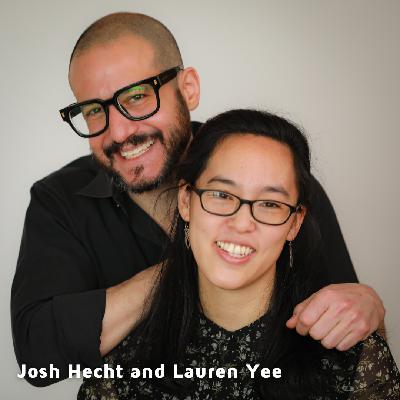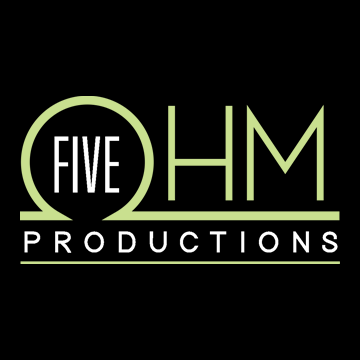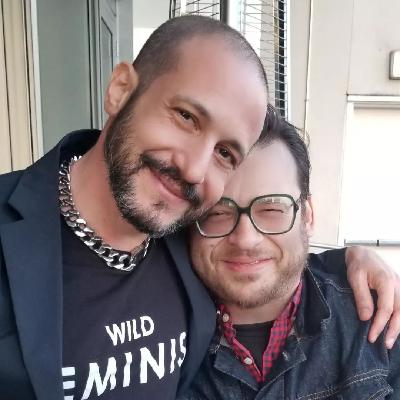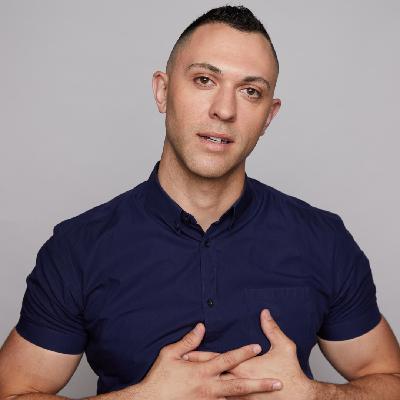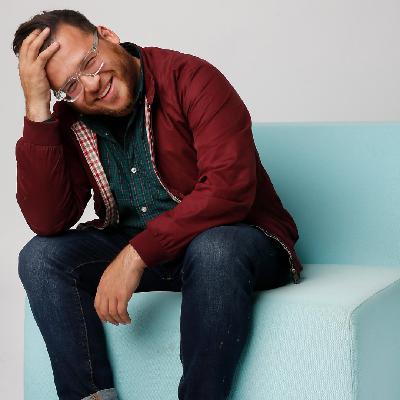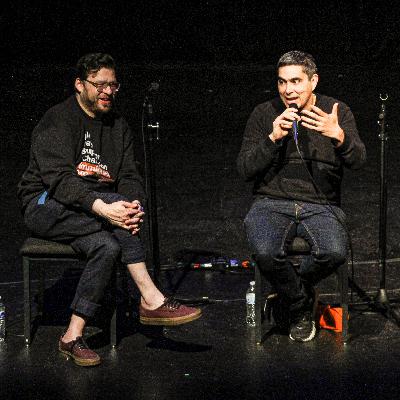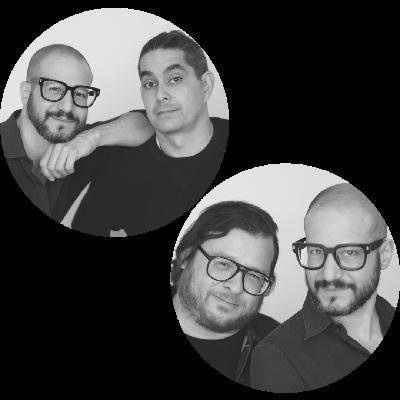Discover Satellite: Beyond The Page
Satellite: Beyond The Page

27 Episodes
Reverse
Ever wonder what a dramaturg brings to a production? "Reggie Hoops" dramaturg Wesley Tipton is a junior at Syracuse University studying theatre management, writing, and dramaturgy. Profile Theatre was lucky to be able to engage Tipton's research skill through her internship in artistic direction with "Reggie Hoops" director Melissa Crespo. In this episode, Tipton shares some of the same insights into the historical context surrounding "Reggie Hoops" that she shared with the actors and creative team to guide them to a deeper understanding of the character's circumstances.
"Reggie Hoops" director Melissa Crespo on growing up splitting her time between suburban Connecticut and the lively, diverse boroughs of New York; her life-long relationship with hip hop culture, and why she considers "Reggie Hoops" the next great family drama.
In 2016, when playwright Kristoffer Diaz was first writing "Reggie Hoops" for a group of M.F.A. actors, he imagined they would perform this story - the story of an exceptionally qualified woman leader in a field overwhelmingly dominated by men - in a world where the U.S. was celebrating having elected its first woman as president. Eight years and a handful of workshops (and life-altering career opportunities) later, Diaz reflects on the show’s evolution and imminent Portland debut.
An interview with Blanca Forzán: Lighting Designer, Director, Playwright, Architect, and Human Being
This episode explores the relationship that develops when artists have the opportunity to collaborate on multiple projects over time. Profile Theatre's current production, our orange sky, is the third of christopher oscar peña's plays in Profile's two-year season The American Generation. While several of the actors have appeared in multiple productions, Forzán has designed lights for all three. In this episode, Forzán describes working with peña, and what these plays have meant to her as a Latina immigrant.
Playwright christopher oscar peña carved out some time between rehearsals and rewrites of "our orange sky" to lead a writing workshop with Profile Theatre's Community Profile cohort.
We sat down right after chris’s workshop to hear some of what they worked on together, and how they’ve seen their own first generation or immigrant experience reflected in Profile’s work this season.
"our orange sky" director Evren Odcikin shares how his own history as an immigrant fuels his passion and commitment to portraying similar stories with compassion, complexity, and in collaboration with and for the communities being portrayed.
"our orange sky" director's own history as an immigrant fuels his passion and commitment to portraying similar stories with compassion, complexity, and in collaboration with and for the communities being portrayed.
Artistic Director Josh Hecht sits down with season featured playwright Lauren Yee to talk about her inspiration for the three plays Profile is presenting in our 3-day Lauren Yee Festival: Mother Russia, The Song of Summer, and Samsara. They also touch on how becoming a mother has affected Yee's relationship with her work, and what it means to write outside one's own experience or identity.
A behind-the-scenes look at awe/struck's video design process. A lot of people working in creative professions are increasingly wary of how Artificial Intelligence (AI) will affect their industry. awe/struck's video designer (Luke Norby) and creative technologist (Scott James) of Five OHM Productions are excited about all of the possibilities AI can offer and view it as a creative asset, rather than a threat.
Our season's first episode of Satellite orbits awe/struck, the first of three world premieres Profile will produce this year. Satellite host and Director of Community Engagement Tamara Carroll grabs some time with playwright christopher oscar peña and director Josh Hecht (Artistic Director) on their meal break from rehearsal to discuss the play's origins, its journey and evolution from a Profile staged reading to an imminent world premiere, and the play's complex interplay of brutality and tenderness.
Ben Villegas Randle
New York based director Ben Villegas Randle shares the parallels between the play, chris peña's story, and his own, as well as his process for understanding the world of the play through concrete visual metaphor. This episode makes reference to negative stereotypes and attitudes towards Latiné immigrants, including those that exist within the Latiné community.
Matthew Sepeda
In part 2 of this three-part series orbiting How to Make An American Son, we chat with actor Matthew Sepeda, who plays the lead character Orlando in this production. Sepeda draws connections between his character and his own upbringing, and describes his experience portraying playwright christopher oscar peña as a teenager.
christopher oscar peña
We kick off our 3-part series orbiting How to Make an American Son with playwright christopher oscar peña. In April, peña came to Portland to workshop his newest play, Our Orange Sky. Prior to his visit, Director of Community Engagement Tamara Carroll talked to him about what peña refers to as the "alternate metaverse version of my plays, where they are a fictitious but also factual take on me and my family." Peña discusses the real life story that inspired American Son, the variables of power and privilege, and why he calls the play "a love letter to my father."
How to Make An American Son runs June 8-25, 2023 at Imago Theatre.
In part 2 of the Playwright Convening Satellite series, we hear reflections on the week's work from the playwrights and workshop directors.
In the first half, Director of Community Engagement, Tamara Carroll, sits down with christopher oscar peña and Kristoffer Diaz at the end of their week-long Portland residency, where they workshopped two plays that will enjoy their world premieres at Profile next season - our orange sky, and Reggie Hoops.
In the second half, we hear from directors Leah C. Gardiner and Dámaso Rodríguez about their techniques for effectively staging a reading specifically for the purpose of helping the playwrights develop their work.
In this episode, Artistic Director Josh Hecht helps position the Convening, both within The American Generation season, and in Profile’s own history. Following that, Kristoffer Diaz (Chad Deity, Welcome to Arroyos) describes the evolution of his new play Reggie Hoops, and christopher oscar peña shares just how closely his art imitates his life in both How to Make an American Son, and our orange sky.
Click here to read more about the playwrights.
In this episode, host Bobby Bermea (who is also directing Welcome to Arroyo’s) chats with playwright, Kristoffer Diaz about what inspired Arroyo’s, New York City, his Puerto Rican heritage, his love of hip-hop music and more!
This episode of Satellite: Beyond the Page orbits our production of King of the Yees. You’ll hear from Director Lava Alapai about why King of the Yees has been a “bucket-list” project since she first read the script five years ago.
Host Bobby Bermea also speaks with Nick Lee of the Portland Lee Association Lion Dance Team about the tradition of Chinese family associations, lion and dragon dances. Bobby also talks to photographer and artist Horatio Law about the lobby display he curated, the work currently on display at the Portland Chinatown Museum, and the evolution of Portland’s Chinatown.
Join Bobby Bermea as he chats with playwright Kristoffer Diaz and pro-wrestler and wrestling consultant about the world of The Elaborate Entrance of Chad Deity.
This episode of Satellite is an exploration and discussion of the themes percolating on the surface and underneath Branden Jacobs-Jenkins award-winning play, Appropriate. We will speak with director Jerry Ruíz, about how he approaches this complex and potentially volatile work both within the art itself, and the practical concerns of what the artists are being put through.
We’ll also be talking to Dr. Roberta Hunte, who teaches a course on race and social justice at Portland State University, talks about the difficulty and necessity of talking about race and offers some tools to help us through it. And artist and memory activist Michael Stevenson talks about the work he’s doing here in Portland to bring hidden histories forward in 21st century Portland.



